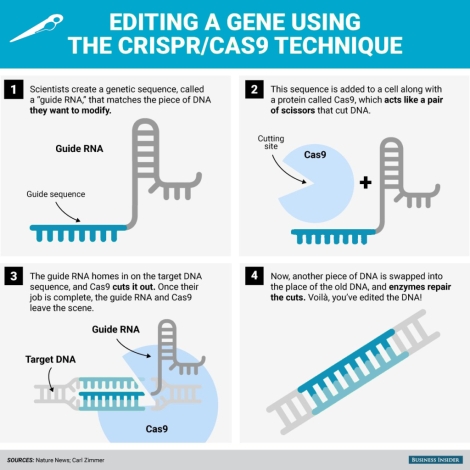
Coral bleaching is becoming a big issue in our world's oceans. Coral bleaching is caused by an increase in water temperature, and as the average temperature of the Earth's atmosphere gradually increases, so does the ocean's. Coral reefs are home to more than 25% of all marine life, and are very diverse ecosystems. Without coral reefs, many marine species would go extinct.
Scientists have found ways to combat this, though. Scientists have discovered a gene for heat tolerance in corals. The researchers used CRISPR genome editing as a way to better understand the gene that helps corals survive higher temperatures. During another research project, researchers found a way to develop heat resistant corals with their symbiotic micro algae. The micro algae that lives within the coral's tissue provides nutrients to the corals via photosynthesis. The micro algae is a key component to bleaching events, because it is the first to die off. The researchers exposed the algae to progressively higher temperatures over several years, and then reintroduced them to coral larvae. By manipulating the micro algae to be more tolerant of heat, it made them better at photosynthesizing, and improved the heat response of the corals.
Hi Nicole, I liked your blog on coral bleaching because of how big the impact it has on our world. CRISPR genome editing is definitely a better way to understand how corals survive at different temperatures and I think that with genetic modification in the coral reefs will allow for our oceans to slowly heal and bring back marine life.
ReplyDeleteThese gene for heat tolerance in corals is very interesting in how the CRISPR genome can help better understand and prevent coral bleaching due to increasing ocean temperatures. Coral reefs are a very sensitive indicator species on the health of the oceans. The more coral reefs there are means there is more balance with the chemistry of the oceans. Sadly, temperature is not the only threat to corals where ocean acidification is another growing threat to coral bleaching. In the geological time scale of coral reefs, they will not last long due to the continuous changes occurring on Earth.
ReplyDelete